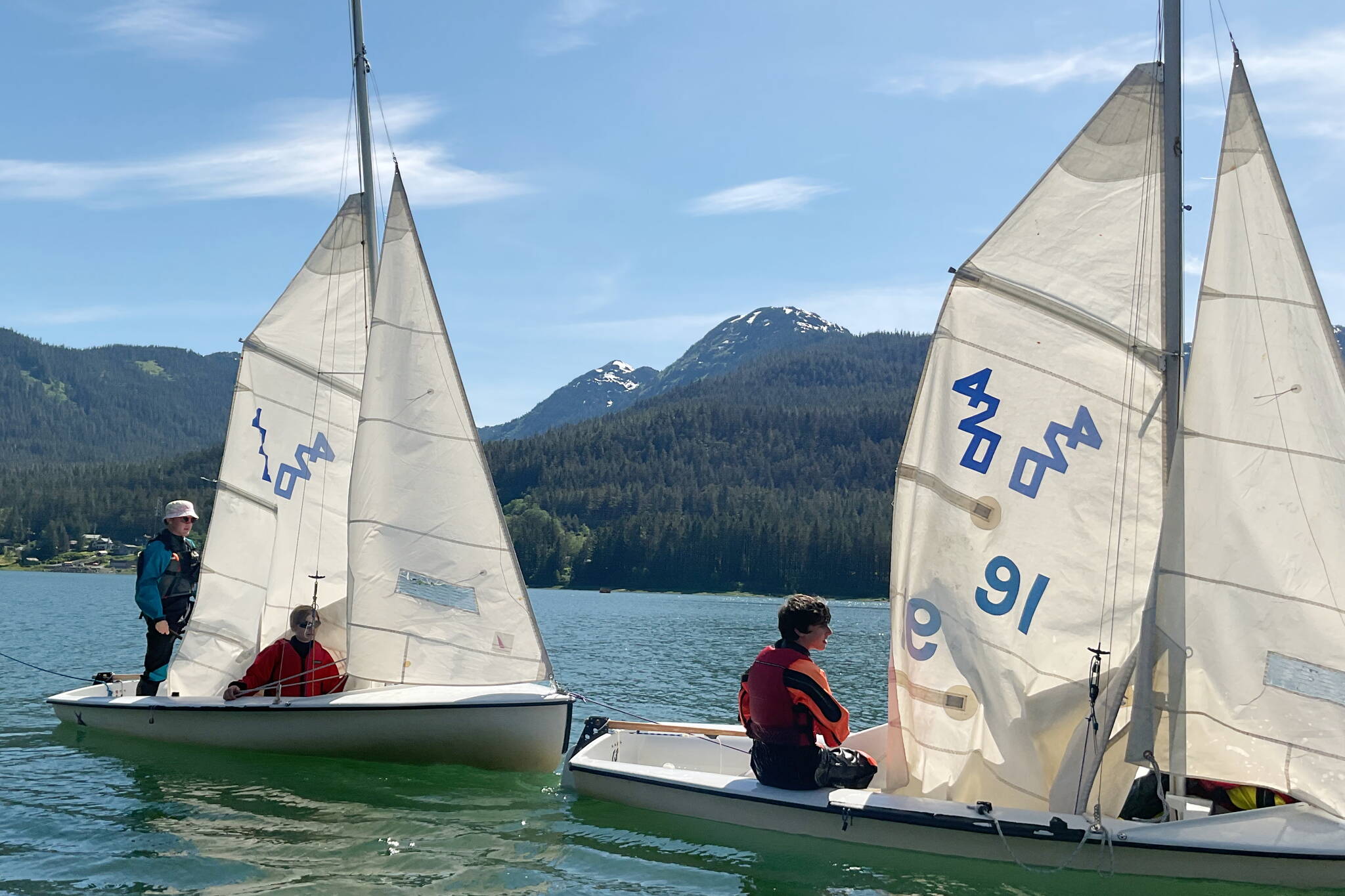For Angus Andrews, 14, sailing is a hobby that runs in his blood — his passion echoes the memories of his parents, who once called a sailboat their home.
As a fourth-year participant in Juneau Youth Sailing (JYS), Andrews serves as a junior instructor in the program, which spans eight weeks each summer and is the only youth sailing school in Alaska.
“My parents offered me the classes when I was 10,” he said. “Sailing is like my favorite thing.”
Andrews is not alone in his admiration for the sea, inspired by his parents. Adrian Whitney, a 19-year-old lead instructor, followed in his father’s sailing footsteps and attended JYS classes every summer from age 12 to 16. Whitney is currently on the sailing team at Amherst College, but returns to JYS each summer to witness the growth and transformation of the young sailors.
“My favorite part is seeing the students come back from previous summers and knowing I’m teaching the next instructor,” he said.
JYS is a prominent force in youth maritime education, igniting a passion for sailing and equipping young mariners with essential life skills.The volunteer-driven, nonprofit program has been instilling a sense of adventure on the water since 1997.
Under the guidance of JYS alumni instructors, students ages 12 to 17 receive hands-on experience during classes that take place at the Juneau Yacht Club. The school provides a fleet of dinghies that are just under 14 feet long — about the size of a Subaru Forester — empowering the young sailors with newfound responsibility.
For many students these boats represent their first taste of sailing and their initial opportunity to take command of a vessel — a transformative experience that fosters self-confidence and a connection with the maritime world. The program instills not only the art of sailing, but also the importance of safety measures.
“Skills learned on a JYS dinghy could help save students’ lives someday or help them save someone else’s life,” said Carl Brodersen, a former JYS student, instructor and current board president. “And if nothing else, we model excellent life jacket use, which is half the boating safety battle anyway.”
Sailors progress through three levels of courses. Level 1, designed for beginners, focuses on building foundational skills and teaching vital safety techniques. As students advance to Levels 2 and 3, they delve deeper into sailing techniques, seamanship and navigation, gaining the knowledge necessary to handle more complex sailing challenges.
Each four-day course begins with land-based games, fostering camaraderie and team building. Lessons are presented on whiteboards, introducing new concepts, and then the sailors suit up in drysuits to brave the Gastineau Channel for the second part of the day.
Capsize drills, where students learn to overturn and right their boats, become exhilarating challenges and valuable learning experiences, even turning into a game. Brodersen said capsize races help students overcome their apprehension about falling into the water and teach them to think quickly.
“Sailing as a sport is a mix between soccer and ballroom dancing,” he said. “It requires athleticism, excellent situational awareness, quick thinking and effective communication, or your boat won’t go where you want it to and might flip over in the process.”
Beyond the practical skills gained, JYS has a lasting impact on its participants. Brodersen said former students often find themselves drawn back to the water, whether through collegiate sailing teams, careers in maritime fields such as naval architecture, or even competing in the Junior Olympics.
At JYS, students not only become proficient in sailing, but also acquire tools to tackle any challenge with self-assurance, resilience and respect for the water. As a program alumnus, Brodersen personally attests to the transformative power of sailing — he said it serves as a valuable teacher and reminder that actions, or lack thereof, have consequences.
“The wind and currents don’t care what we intended to do, only what we actually do, and contending with forces like that — that we can’t control, only respond to — provides no end of valuable life lessons,” he said.
• Contact Therese Pokorney at therese.pokorney@juneauempire.com.

